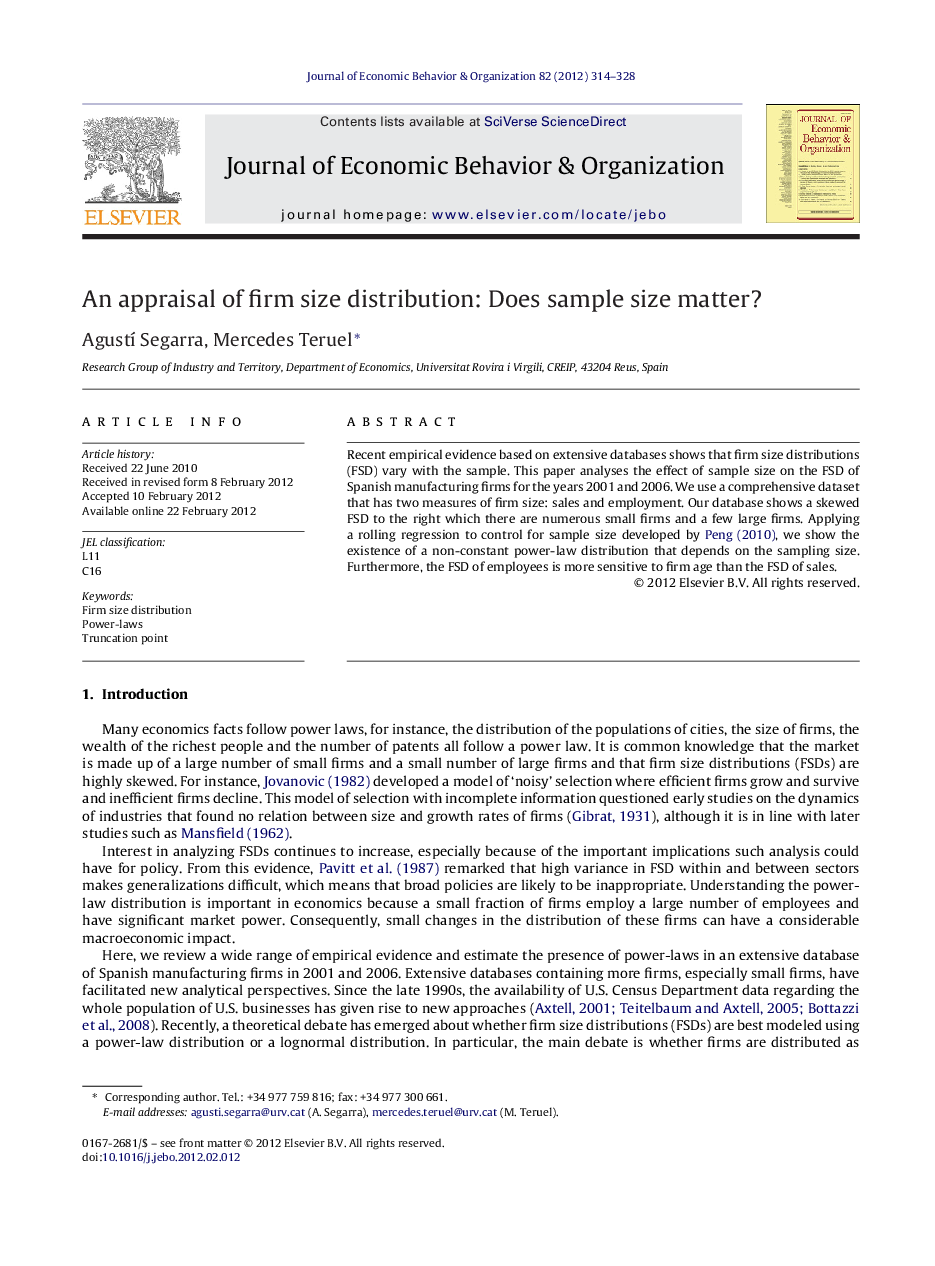| Article ID | Journal | Published Year | Pages | File Type |
|---|---|---|---|---|
| 883867 | Journal of Economic Behavior & Organization | 2012 | 15 Pages |
Recent empirical evidence based on extensive databases shows that firm size distributions (FSD) vary with the sample. This paper analyses the effect of sample size on the FSD of Spanish manufacturing firms for the years 2001 and 2006. We use a comprehensive dataset that has two measures of firm size: sales and employment. Our database shows a skewed FSD to the right which there are numerous small firms and a few large firms. Applying a rolling regression to control for sample size developed by Peng (2010), we show the existence of a non-constant power-law distribution that depends on the sampling size. Furthermore, the FSD of employees is more sensitive to firm age than the FSD of sales.
► We examine the sensitivity of the power-law parameter to sample size. ► Increasing sample size with smaller firms diminishes the power-law parameter. ► Firm size measured in sales obtains lower power-law parameter than in employees. ► The truncation point for the Zipf's Law is smaller for sales than employees. ► Firm age affects to the rank–size relationship indirectly.
